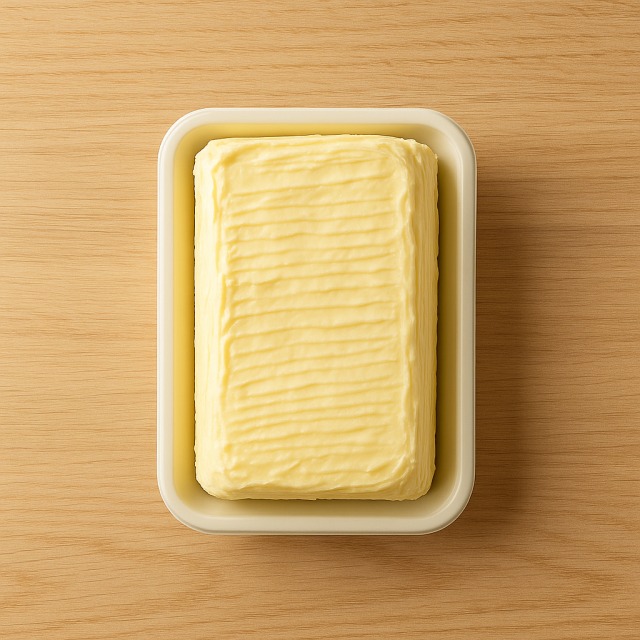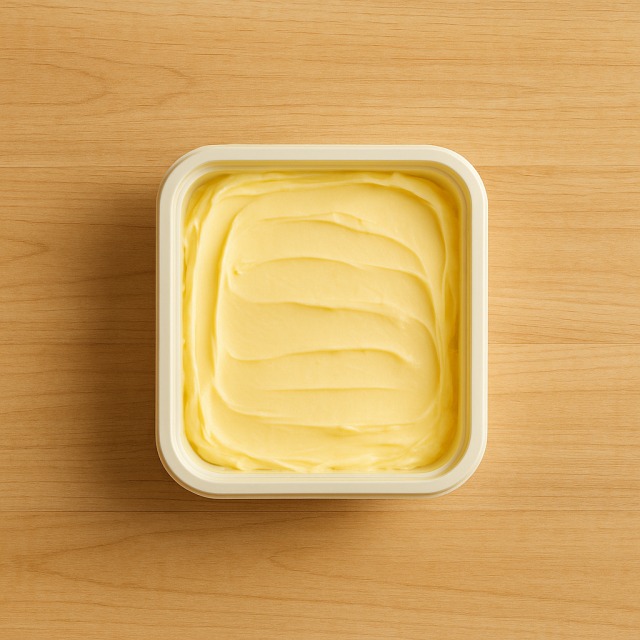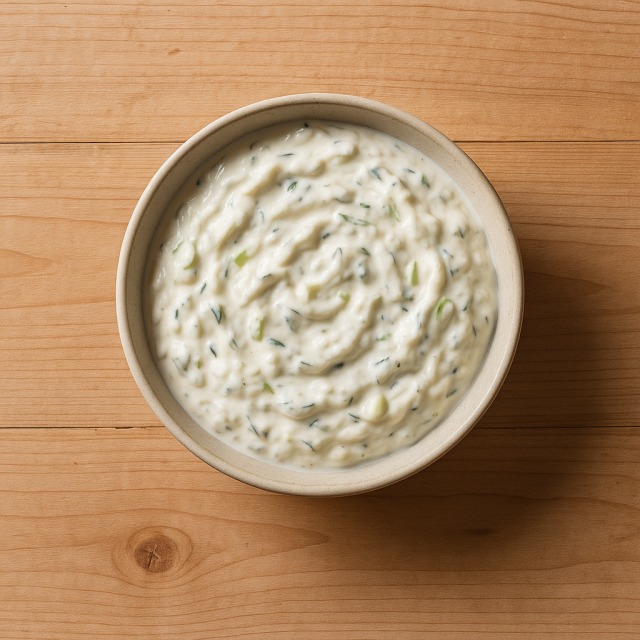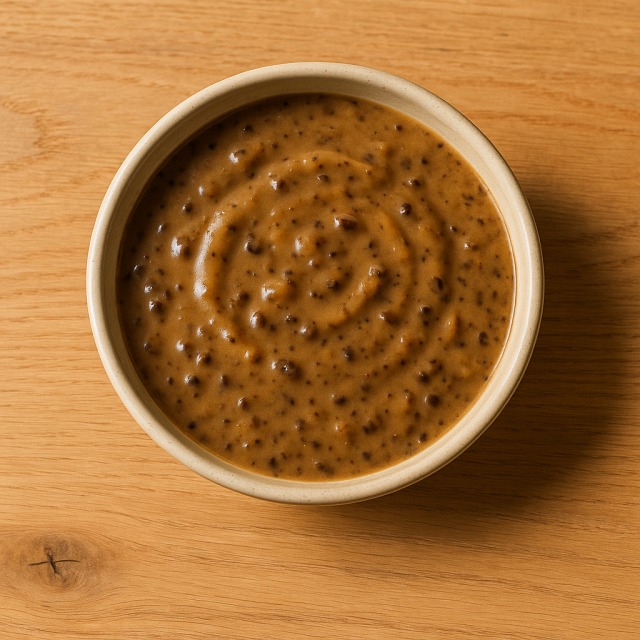Calorie Chart / Seasoning & Sauces / Vegetable oil
How Many Calories Are in Vegetable oil?
Calculation of the nutritional value & Recommended Dietary Intake of vegetable oil
For ml and a calorie requirement of kcal
| Calories 90 kcal | Proteins 0 g | Lipids 10 g | Carbohydrates 0 g |
| 5% | 0% | 15% | 0% |
Health benefits of vegetable oil

Vegetable oil - 100ml
Calories 900 kcal
Proteins 0 g
Lipids 99.9 g
Carbohydrates 0 g
Vegetable oil is considered a high-calorie ingredient: its density in calories far exceeds that of most foods, making it a quick way to raise overall calories when energy intake has to be increased. Because calories translate directly into energy, this can be useful for athletes in heavy training or for people who struggle to meet their daily calorie needs when appetite is low.
On the micronutrient side, many refined vegetable oils provide notable amounts of vitamin E and vitamin K, two fat-soluble vitamins that support antioxidant protection and blood coagulation respectively. Unrefined versions may also deliver plant sterols and small quantities of omega-3 (α-linolenic acid) or omega-6 (linoleic acid), nutrients that contribute to cardiovascular balance. Thanks to its concentration of unsaturated fats, vegetable oil can help maintain normal cholesterol levels when it replaces saturated fat sources such as butter. All these assets come at the cost of significant calories, so mindful serving sizes remain essential.
Some supposed benefits go beyond pure nutrition: traditional medicine cites vegetable oil as a skin and hair emollient, and many endurance athletes add a drizzle to morning porridge for slow-release calories during long efforts. Historically, presses for sesame, rapeseed, or sunflower seeds date back thousands of years, illustrating how long humans have relied on vegetable oil both for flavor and for concentrated calories. Pairing it with carotene-rich vegetables like carrot or pumpkin improves absorption of fat-soluble nutrients, again without adding extra proteins or carbohydrates but definitely increasing calories.
Tips for incorporating vegetable oil into a balanced diet
Because vegetable oil brings virtually only lipids and a large amount of calories, using the right dose is the key to integrating it into a balanced diet. A single tablespoon delivers roughly 120 calories, so measure rather than pour freely if you aim to control calorie intake.
- Vinaigrette: whisk one part vegetable oil with one part vinegar, add mustard and herbs, then toss with raw tomato, cucumber, and lettuce. You obtain flavor, healthy fats, and moderate calories per serving when the dressing is dosed at one tablespoon per plate.
- Marinade for lean protein: combine vegetable oil, lemon juice, and spices, then coat a chicken breast. The oil locks in moisture while contributing limited calories once most of the marinade is discarded before cooking.
- Roasted vegetables: toss diced potato or zucchini with one teaspoon of oil per person. You get crisp texture without the burst of calories that deep-frying would add.
- Baking substitute: to lighten the calories of cakes, replace part of the oil with fruit purée, such as mashed apple. You still benefit from the oil's moisture but cut overall calories.
Remember: count the oil first, then build the rest of the plate with high-protein, high-fiber items so that calories stay under control while the meal remains satisfying.
Frequently Asked Questions
- How many calories are in vegetable oil?
- Vegetable oil provides 900 kcal per 100 g.
- How many calories are there in one tablespoon of vegetable oil?
- A standard tablespoon (≈13 g) supplies about 120 calories, a useful figure when you track daily calorie intake precisely.
- Is vegetable oil suitable for a weight-loss diet despite its calories?
- Yes, but portion size is crucial; limiting the oil to one teaspoon can add flavor while keeping calories in check, especially when paired with low-calorie foods like broccoli.
- Does vegetable oil contain proteins or carbohydrates?
- No, it is almost 100% lipids, so all its calories come from fat and none from proteins or carbs.
- What is the smoke point of typical vegetable oil?
- Most refined vegetable oils tolerate 200 °C or more, making them safer for high-heat cooking without burning and wasting calories.
- Can I replace vegetable oil with margarine in baking?
- Yes, but check labels: margarine contains water, so you may need more to reach the same calories and texture.
- Is vegetable oil richer in calories than avocado?
- Gram for gram, vegetable oil delivers far more calories; whole avocado has fiber and water that dilute its calorie density.
Similar foods
Information provided by Calorie Menu may contain inaccuracies or errors. It cannot, under any circumstances, substitute medical advice or medication.










